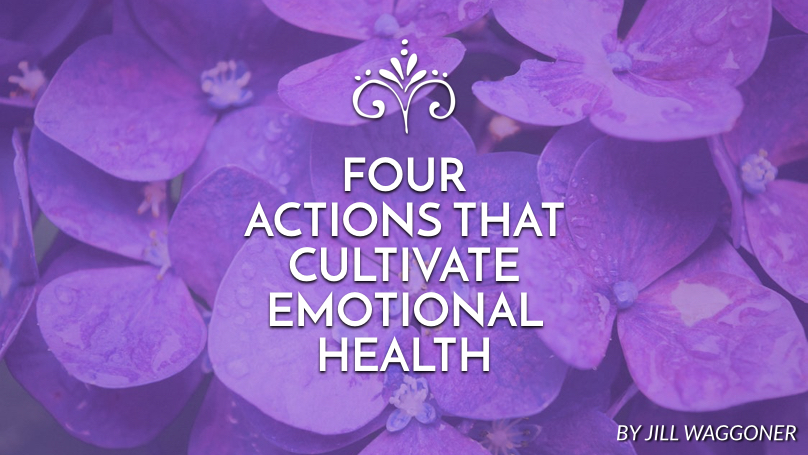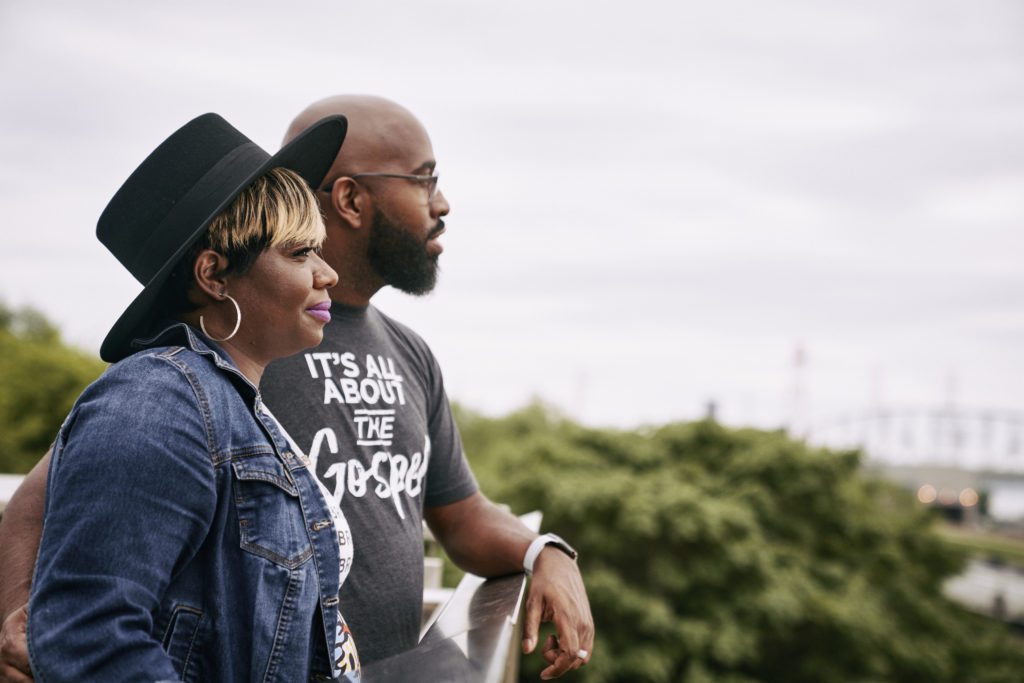Until a few months ago, emotional health sounded like hogwash to me, like the luxurious self-reflection allotted to those with discretionary means and discretionary time.
I thought I had no need to pursue such things, but in reality, I was trying to keep my head above water. Serving those around me, working part-time, raising two preschool boys and being a pastor’s wife—in whatever way that week required—had me running at a frenetic pace. I remember saying that I had determined that “anyone doing anything that mattered” was busy. They were up late at night and early in the morning. That was the future I saw for myself, and I wasn’t excited about it.
In retrospect, I was attempting to soothe the depletion I was feeling. I was making personal sacrifices and asking those around me to do the same. I wanted to believe it was worth it. Even now, I can’t articulate a clear “why” for the busyness. I just thought I had to.
Then my life came to a screeching halt.
In August 2016, I experienced a life-threatening, mysterious illness that landed me in the ICU. After a few days and lots of tests, I began to improve, and, in short, the doctors determined my condition to be viral. By God’s grace, I was spared any serious, long-term consequences. I was, however, told that my health would take 6-12 months to fully recover.
Near-death experiences, as well as physical difficulties and limitations, quickly clear the fog of busyness and force an assessment of your life. A season of disability slays any misconceptions about your resources, time and ability to control the future. Those things are fleeting, if even true at all.
As I sought a path to recovery, I reviewed every area of my life through the lens of stewardship. I quickly, and embarrassingly, determined that my emotional health was as weak as my physical status. It was time to play the long game, rather than running to and from each immediate need, and my husband and I determined that caring for my emotional health should be prioritized right alongside exercise and Bible reading in order to do so.
Emotional health is no different than spiritual or physical health. There is no coasting. If you aren’t actively pursuing it, you’re in decline. I believe many in ministry are afraid to talk about this topic. We worry if we confess any emotional needs, we might be seen as “unfit for office.” There are real reasons for this fear. I’ve sat in more than a few search committee interviews. Not everyone can distinguish the pursuit of emotional health from mental illness. Yet, we can’t let this fear push us into a place of emotional anemia.
Hebrews 10:39 says, “But we are not of those who shrink back and are destroyed, but of those who have faith and preserve their souls.” I believe “preserving my soul” requires a plan of action that includes those lessons I learned specifically during the last year.
1. Abide in His love.
After my time in the hospital, a trusted friend and mentor, who has a serious, long-term illness, said to me, “God has a lesson for me every time I’m in the hospital. What was yours?”
My immediate answer was “God loves me.” I had been reading Psalm 25 repeatedly in the hospital and knew God had “remembered his love” and “plucked me from the net,” but my answer sounded juvenile to me at the time. However, today, I believe that truth is the anchor with which my life holds together and the only thing that matters in times of difficulty or disability. His love brings purpose to pain and reminds of us of His goodness.
2. Acknowledge emotional weariness.
You will become exhausted, infuriated and persecuted—and probably by other believers. There are days that end with weeping. It is an unpopular reality for Christians, as individuals, as well as for church leadership, to confess.
I have read and re-read this article by Beth Moore. There is something so powerful about someone saying, I’ve been there, too, and it’s okay to feel this way. The Bible provides accounts of others who have felt that their efforts were for naught, mystified as to why their obedience has led to such suffering. Psalm 73 is a great example.
3. Rest.
God “led me beside still waters” (Psalm 23) in my season of recovery, most likely because of my previous neglect of this need. I still struggle to prioritize rest. Some things must go undone in order for true rest to happen in my life. And in our digital age, I’ve found that rest doesn’t happen with an iPhone in arm’s reach. Do whatever it takes to unplug, get away from the things that beckon you into busyness and sometimes, just sleep!
4. Pursue life-givers.
My husband and I keep a running list of people that we want to have in our home for a meal. That list includes those new to the neighborhood, church members we want to know better, key leaders in his ministries and other types of people. I can take every square inch of our life and call it “ministry,” but I can do so in a way that ignores the gifts of friendship God has given me. Friendships need time to develop trust, context and depth. Find those people who fill your tank, make you feel comfortable and can respond in grace and maturity to your honesty. Make time for them, even if that means someone else gets pushed to the next month.
2016 is one of those years that is marked by an altar in my heart. My illness was His grace to me and has produced a “peaceful fruit” (Hebrews 12:12). God revealed to me truths and practices that I would have never known, and I believe He still desires for me to learn. I pray that others can benefit from them.
Published May 1, 2017



